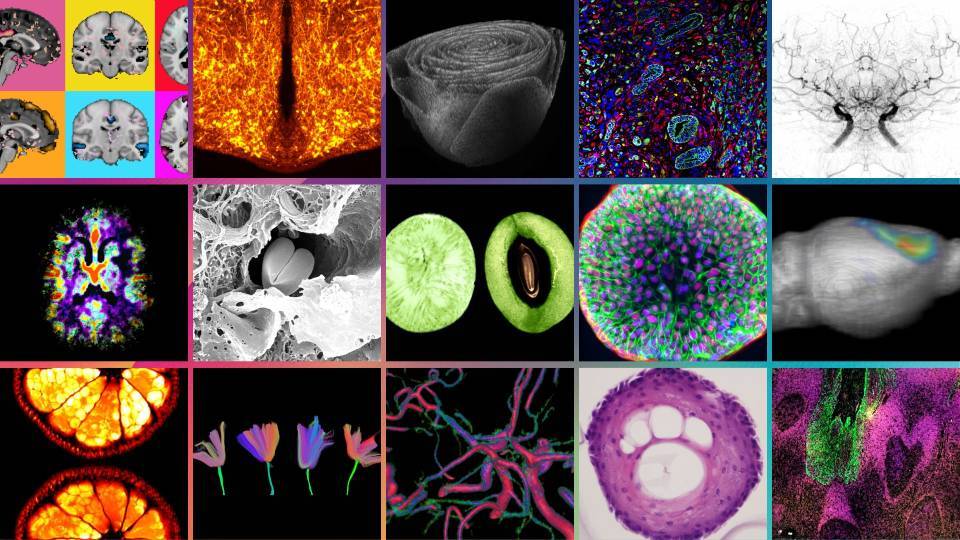For some time now, it has been observed that the presence of metabolic disorders such as obesity or diabetes can lead to cognitive decline. Now, researchers from IDIBAPS have coordinated a study in which they show the involvement of a molecule and a brain region in this process. The decrease in the neurosteroid pregnenolone in the hypothalamus, due to the presence of a metabolic disease, leads to a deterioration in cognitive function, both in animal and human models.
The study, published in the journal Cell Metabolism, was coordinated by Marc Claret, head of the IDIBAPS Neuronal control of metabolism research group and professor at the University of Barcelona. The first author of the article is Sara Ramírez, post-doctoral researcher in this group. Other researchers from the Hospital Clínic-IDIBAPS took part in the study, as did researchers from the University of Barcelona, the Hospital de Sant Pau, the University of Santiago de Compostela and the Max Planck Institute for Metabolism Research.
Obesity and diabetes, as well as other metabolic disorders, can lead to cognitive decline. However, the molecular basis and the brain areas involved in this relationship have not been well studied. “Our aim was to confirm the relationship between metabolism and cognition, as well as to examine whether specific neuron populations in areas related to metabolic control, such as hypothalamic POMC neurons, could be involved ”, explains Marc Claret. Defining the molecules or metabolites involved in this process could contribute to the design of future treatments.
Diet-induced decrease in a neurosteroid, linked to memory loss
In the first part of the study, carried out with mice, diets high in fat and sugar were administered and cognitive status and memory were analysed. The researchers observed that, after four days of an obesogenic diet, and irrespective of the development of obesity, there was a decline in recognition memory.
In order to discover which molecule(s) was/were involved, the metabolites involved in this relationship were analysed. “After the diets, we observed a decrease in pregnenolone, a neurosteroid synthesized by the nervous system, and more specifically the hypothalamus”, says Sara Ramírez. “The central administration (intracerebroventricular) of this neurosteroid was able to reverse this negative effect of the obesogenic diet on the memory, demonstrating a causal effect”, she adds.
On the other hand, the researchers generated a genetically modified mouse model in order to block pregnenolone synthesis in hypothalamic POMC neurons, in order to observe the possible effects on memory. By eliminating pregnenolone production exclusively in POMC neurons, deterioration in recognition memory was observed.
The relationship between a healthy diet and cognitive impairment
The second part of the study involved a group of 40 patients with obesity. The pregnenolone levels in the cerebrospinal fluid of obese patients with metabolic syndrome were analysed and correlated with their cognitive status. “We observed that there was a negative correlation between the pregnenolone levels and their cognitive abilities, partly confirming our results in mice”, points out Marc Claret.
So, deterioration in memory due to metabolic alterations, such as those generated by a sustained unhealthy diet, is partly the result of defects in pregnenolone synthesis in the hypothalamus.
This finding is very relevant from several different points of view, including from an evolutionary perspective. Although the hippocampus is the brain area par excellence responsible for managing memory function, it makes sense to consider that brain areas related to the control of eating behaviour and metabolism, such as the hypothalamus, also play a key role. “We must bear in mind that in order to survive, living beings need to remember where to find food, which foods provide more energy than others, and which foods could be toxic, etc. Our study shows that the neurons involved in the regulation of food intake also play a role in memory performance, thus connecting metabolism and cognition”, concludes Marc Claret.
The study was made possible thanks to funding from the European Research Council and the Spanish Ministry of Science and Innovation.
Study reference:
Hypothalamic pregnenolone mediates recognition memory in the context of metabolic disorders
Sara Ramírez, Roberta Haddad-Tóvolli, Marija Radosevic, Miriam Toledo, Adriana Pané, Daniel Alcolea, Vicent Ribas, Maria Milà-Guasch, Macarena Pozo, Arnaud Obri, Elena Eyre, Alicia G. Gómez-Valadés, Iñigo Chivite, Tomas Van Eeckhout, Ioannis Zalachoras, Jordi Altirriba, Corinna Bauder, Mónica Imbernón, Gloria Garrabou, Carmen Garcia-Ruiz, Rubén Nogueiras, David Soto, Xavier Gasull, Carmen Sandi, Jens C. Brüning, Juan Fortea, Amanda Jiménez, José C. Fernández-Checa, Marc Claret
Cell metabolism. Volume 34, Issue 2, P269-284.E9, February 01, 2022. DOI:https://doi.org/10.1016/j.cmet.2021.12.023




